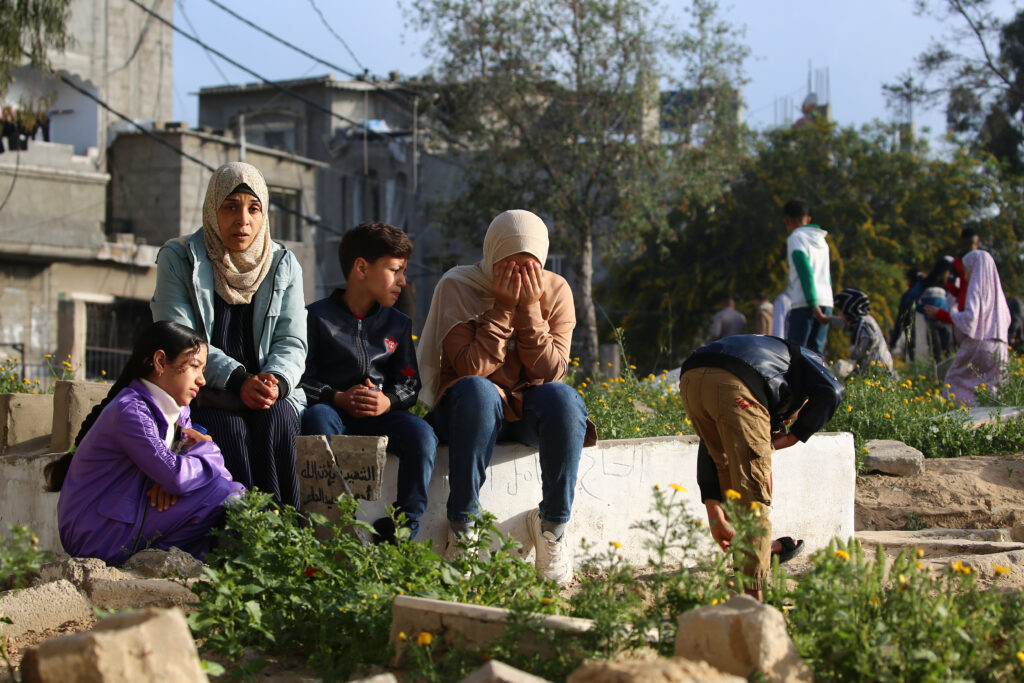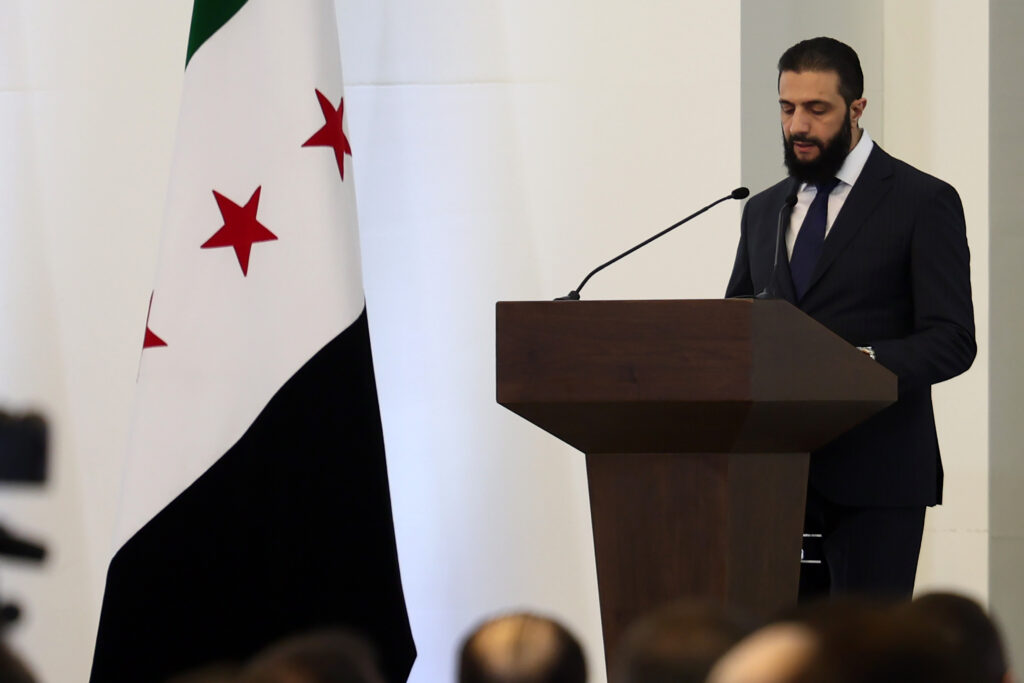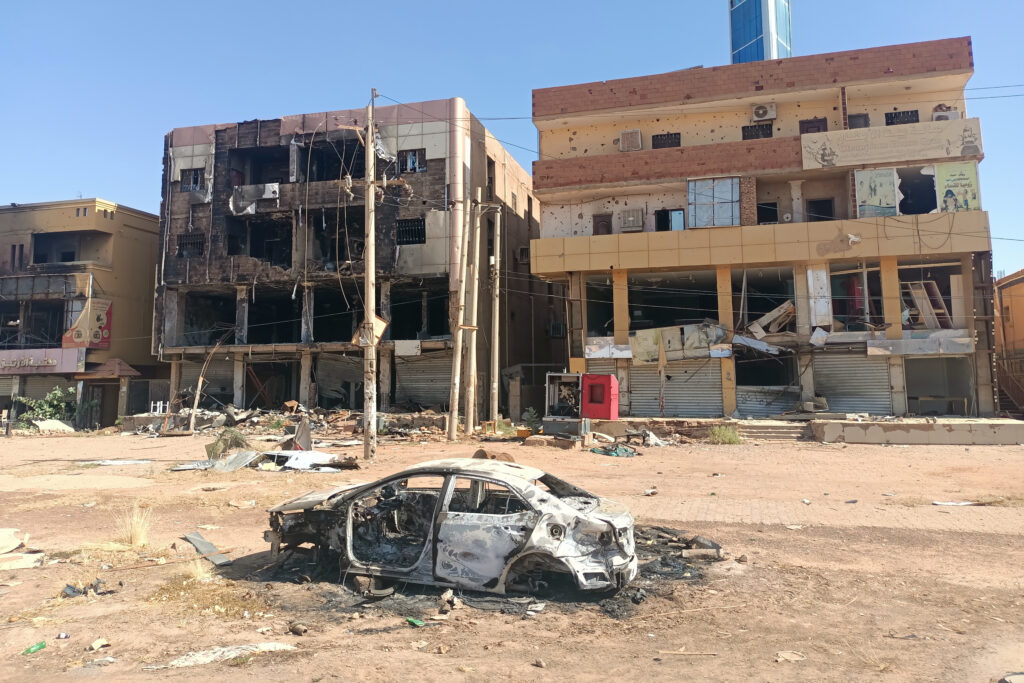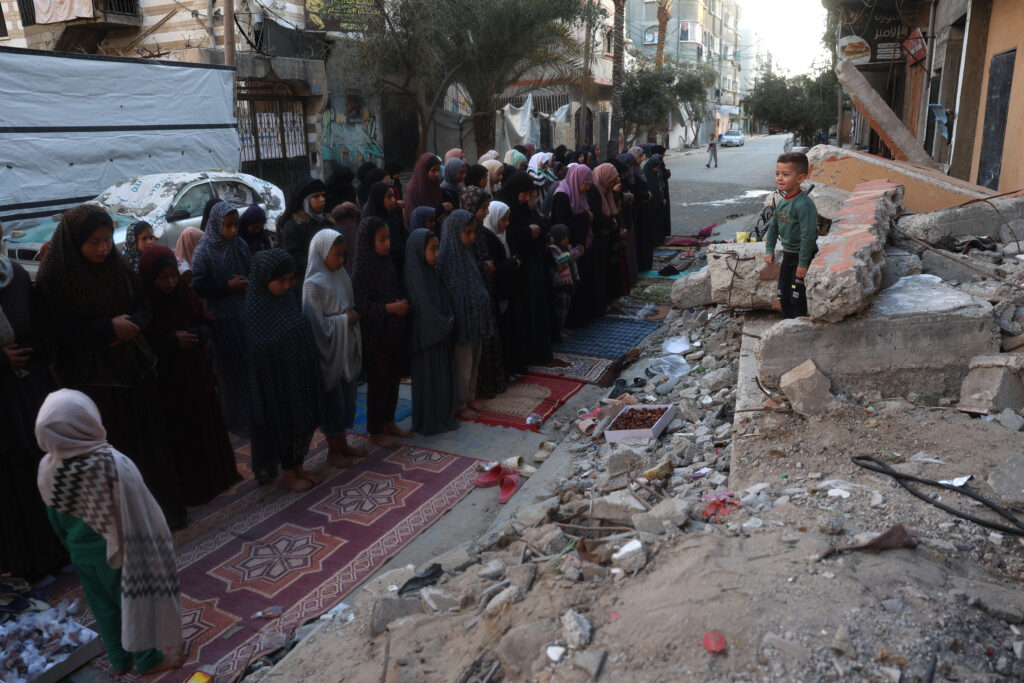AFP Asia Business
Netanyahu offers Hamas leaders Gaza exit but demands group disarm
Israeli Prime Minister Benjamin Netanyahu on Sunday offered to let Hamas leaders leave Gaza but demanded the group abandon its arms, as his country kept up its bombardment of the Palestinian territory.Gaza’s civil defence agency said an Israeli air strike on a house and tent sheltering displaced Palestinians killed at least eight people, including five children.The strike hit Khan Yunis on the first day of Eid al-Fitr, the festival marking the end of the Muslim fasting month of Ramadan.Samah Dahliz, 38, whose young relative was among the dead, said: “What kind of Eid is this that we are going through?””He’s a child, his parents had bought him new clothes for Eid to make him happy,” she told AFP.”They bombed them in their tent while they were sleeping.”Israel resumed intense bombing of Gaza on March 18 and then launched a new ground offensive, ending a nearly two-month ceasefire in the war with Hamas.Rejecting domestic criticism that the government was not engaging in diplomacy to release hostages, Netanyahu argued the renewed military pressure was proving effective.”We are negotiating under fire… We can see cracks beginning to appear” in Hamas’s positions, the Israeli leader told a cabinet meeting.In the “final stage”, Netanyahu said that “Hamas will lay down its weapons. Its leaders will be allowed to leave”.Hamas has expressed a willingness to relinquish Gaza’s administration, but has warned its weapons are a “red line”.Egypt, Qatar and the United States are attempting to again broker a ceasefire and secure the release of Israeli hostages still held in Gaza.A senior Hamas official stated on Saturday that the group had approved a new ceasefire proposal put forward by mediators, and urged Israel to support it.Netanyahu’s office confirmed receipt of the proposal and stated that Israel had submitted a counterproposal in response.The details of the latest mediation efforts have not been disclosed.- ‘Outraged’ -French President Emmanuel Macron urged Netanyahu to “put an end to the strikes on Gaza and return to the ceasefire”, adding in a post on X after a phone call with the Israeli leader that “humanitarian aid must be delivered again immediately”.Israel has pressed on with its air and ground attacks in the Gaza Strip, and on Sunday conducted several air strikes according to medics and witnesses.Meanwhile, the Palestine Red Crescent Society said it had recovered the bodies of 15 rescuers who had been missing since Israeli troops fired at ambulances in the southern city of Rafah a week ago.The Red Crescent said the bodies were found buried in the sand.It accused Israel of committing a “war crime” by targeting ambulances, which the military has said were “suspicious vehicles” used by Hamas.The International Federation of Red Cross and Red Crescent Societies said it was “outraged” by the incident.”They were humanitarians. They wore emblems that should have protected them,” said the federation’s Secretary-General Jagan Chapagain.In his remarks on Sunday, Netanyahu said Israel was working towards a plan proposed by US President Donald Trump to displace Gazans to other countries.Netanyahu said that after the war, Israel would ensure overall security in Gaza and “enable the implementation of the Trump plan” — which had initially called for the mass displacement of all 2.4 million people living in the Palestinian territory — calling it a “voluntary migration plan”.- Yemen missile -Trump had proposed that Gazans be removed from the territory with no right of return, later saying he was “not forcing” the widely condemned plan for the United States to take over the territory and redevelop it.Since the fighting restarted, the health ministry in Hamas-run Gaza said that at least 921 people have been killed, in figures issued on Saturday.The war was sparked by Hamas’s October 7, 2023, attack on Israel, which resulted in the deaths of 1,218 people, according to an AFP tally based on official Israeli figures.Israel’s retaliatory military campaign has killed at least 50,277 people in Gaza, the majority of them civilians, according to the territory’s health ministry.With the renewed violence in Gaza, Yemen’s Huthi rebels have resumed attacks against Israel, whose military on Sunday said it had intercepted one missile.The Iran-backed Huthis say they act in solidarity with the Palestinians, and have also attacked shipping in the Red Sea and Gulf of Aden throughout the war on the same basis.
What we know about Syria’s new government
Syria’s new government, dominated by interim President Ahmed al-Sharaa’s inner circle, faces the daunting challenge of gaining the trust of Syrians, as well as that of Western countries to secure sanctions relief.The transitional 23-member cabinet — without a prime minister — was announced on Saturday, more than three months after Sharaa’s Islamist group Hayat Tahrir al-Sham (HTS) led an offensive that toppled longtime president Bashar al-Assad.Succeeding the caretaker authorities in place since December, the formation of the government follows a constitutional declaration signed into force earlier this month, which experts and rights groups have warned concentrates power in Sharaa’s hands and fails to include enough protections for minorities.- Allies in key roles -Some of Sharaa’s closest supporters and other figures aligned with him make up the majority of the cabinet.Most members are Sunni Muslim, reflecting the demographic make-up of Syria, ruled for decades by the Assad clan which belongs to the Alawite minority.Syria expert Fabrice Balanche said that key portfolios have been given to “former brothers-in-arms who were already part of the Salvation Government that ran Idlib province” in Syria’s northwest, the rebel bastion controlled by HTS before Assad’s fall.These include Assaad al-Shaibani, who as caretaker foreign minister already met with numerous Western and Middle Eastern officials, and retained his cabinet post in the new government.Defence Minister Murhaf Abu Qasra, who as a rebel commander led the offensive that overthrew Assad, also kept his role. His main challenge is building a new national army.Anas Khattab, who has been sanctioned by the United Nations, was appointed interior minister after serving as intelligence chief in a caretaker capacity.The justice ministry went to Mazhar al-Wais, also from the Idlib rebel government. He replaced Shadi al-Waisi, who as interim minister faced criticism from activists and rights groups after old footage resurfaced linking him to the summary executions of two women accused of prostitution.The leader of the White Helmets, the Syrian rescuers who worked in rebel-held areas, Raed al-Saleh, was appointed minister of emergency situations and disasters.- Minority representatives -Amid international calls for an inclusive transition, the new government has four ministers from minority groups in Syria — a Christian, a Druze, a Kurd and an Alawite, none of whom were handed key portfolios.”Mr Sharaa is seeking to broaden his support base well beyond” the ranks of Islamist groups that already back him, said Aron Lund of the Century International think tank.”Seeing a radical Islamist faction coming to power and including minorities, even in a symbolic way, may not be ideal but it could have been worse,” added Lund.Yarub Badr, who is Alawite and served in a government under Assad before the war, was appointed transportation minister.Veteran opposition figure Hind Kabawat, a member of Syria’s Christian minority and longtime Assad opponent, was named social affairs and labour minister, the first woman to be appointed by Sharaa.- Challenges -The autonomous Kurdish-led administration in northwestern Syria rejected on Sunday the legitimacy of the new national government, saying it “does not reflect the country’s diversity”.About 15 percent of Syria’s population is Kurdish.The sole Kurdish member of the new cabinet is not affiliated with the regional administration, which earlier this month had struck a deal with the national authorities to integrate into state institutions, eyeing unity after more than a decade of civil war.Some analysts have expressed concern that the deal was effectively dead on arrival as the Kurdish administration has since also criticised the transitional constitutional declaration.Lund said that in this context, “any government would have struggled to bring stability to the country.””The real question”, according to him, has to do with the level of influence the ministers will actually have.With no prime minister, there is the risk of “extreme personalisation of power”, Balanche warned.According to him, the National Security Council formed on March 13 under Sharaa’s chairmanship “is the real government”.
Sudan paramilitary chief admits withdrawal from capital
The head of the Sudanese paramilitary Rapid Support Forces admitted in a speech to fighters on Sunday that the group had withdrawn from the capital Khartoum which rival army forces have retaken.The comment from RSF commander Mohamed Hamdan Daglo came three days after the group said there would be “no retreat and no surrender” and that its forces had “repositioned”, despite the army’s declaration on Thursday that “the last pockets” of the RSF had been eliminated from Khartoum after nearly two years of war. “I confirm to you that we have indeed left Khartoum, but… we will return with even stronger determination,” Daglo said in the speech posted on social media.The war has created what the United Nations describes as the world’s worst hunger and displacement crises. More than 12 million people have been uprooted, tens of thousands killed, and a UN-backed assessment declared famine in parts of the country.”All those who think that there are negotiations or agreements in process with this diabolical movement are mistaken,” Daglo said, in reference to the army.”We have neither agreement nor discussion with them — only the language of arms.”Army chief Abdel Fattah al-Burhan on Saturday also vowed not to back down, after a decisive blitz in which the army reclaimed the presidential palace, the war-damaged airport and other key sites in the city centre where buildings are burned and bullet-scarred.”We will neither forgive, nor compromise, nor negotiate,” Burhan said, adding that victory would only be complete when “the last rebel has been eradicated from the last corner of Sudan”.Despite the military’s reclaiming of Khartoum, Africa’s third-largest country remains essentially divided in two by the war. The army holds sway in the east and north while the RSF controls most of the vast Darfur region in the west, where it is rooted, and parts of the south.Pope Francis, recovering from a life-threatening bout of pneumonia, on Sunday issued written prayers and urged new negotiations as soon as possible in Sudan.- Appeal for new talks -Early in the war the United States and Saudi Arabia conducted mediation but multiple ceasefires collapsed.US Secretary of State Marco Rubio on Thursday said Washington hoped to do more diplomatically to end the war.Rubio said he was “engaged” on Sudan and had discussed the war with international players including Kenyan President William Ruto and Ethiopian Prime Minister Abiy Ahmed.Rubio’s predecessor Antony Blinken tried extensively to broker an end to the war but ultimately voiced disappointment at the failure to do so.The United States has imposed sanctions on both sides. It accused the army of attacks on civilians and said the RSF had “committed genocide” in Darfur.Following a year and a half of defeats to the RSF, the army late last year began pushing through central Sudan to Khartoum.Analysts have blamed the RSF’s losses on strategic blunders, internal rifts and dwindling supplies.On Thursday night, however, witnesses in the Blue Nile state capital Damazin reported that both its airport and the nearby Roseires Dam came under drone attack by the paramilitaries and their allies for the first time in the war.The army later said it had shot down the RSF drones.Almost 500 kilometres (310 miles) to the northwest in El-Obeid city, a medical source on Sunday told AFP that an RSF strike killed a child and wounded eight other people.It is the latest such attack reported by medical sources since the military in February said it had broken an RSF siege of the North Kordofan state capital.In a January report, a United Nations panel of experts tasked with monitoring an arms embargo on Darfur found “credible” accusations that the United Arab Emirates was funnelling “military support” to the RSF through neighbouring Chad.Abu Dhabi has denied the allegations.
‘Day of funerals,’ Gazans mark grim Eid under Israeli strikes
For the second consecutive year, traditional Eid al-Fitr celebrations marking the end of Ramadan were absent in Gaza on Sunday, as residents of the Palestinian territory awoke to the roar of Israeli bombardment.”Eid, which was once a day of family reunions and visits, has now become a day of farewells and funerals,” said Nahla Abu Matar, a 28-year-old mother, speaking to AFP.Like hundreds of thousands of Gaza residents, she has been displaced from her home in northern Gaza and is now living in the southern area of Khan Yunis.”The mosques where we once prayed have been reduced to heaps of rubble, and the places where we used to gather are now strewn with ruins and bodies,” she said.Gaza’s rescue teams told AFP that eight people, including five children, were killed in a pre-dawn Israeli air strike in Khan Yunis on Sunday.”Instead of waking up to the sound of takbirs (Eid prayers), we woke up to the roar of air strikes and explosions,” Abu Matar said.At dawn, many Gazans gathered across different parts of the territory to offer traditional morning Eid prayers, an AFP correspondent reported.Some unrolled their prayer mats in the streets amid the rubble, while others prayed inside mosques — including the once-majestic Omari Mosque, whose walls have now collapsed under the bombardments.Many prayed beside makeshift tents sheltering tens of thousands of displaced Gazans, living in dire humanitarian conditions.At the Nuseirat refugee camp in central Gaza, several residents visited the graves of loved ones killed in the war. As they prayed, the sounds of artillery fire and the buzz of military drones filled the air.- ‘How much longer’? -Ezzedine Mousa, a resident of Gaza City, described an overwhelming sense of fear gripping the region.”People are afraid to visit one another because a rocket could strike at any moment, claiming their lives,” he said.”Our children’s eyes reflect their fear, but we do our best to keep them happy with whatever little we have.”Israel resumed its military campaign across Gaza on March 18 after a fragile weeks-long truce with Hamas collapsed.Since then, more than 900 people have been killed across Gaza, according to the health ministry of the Hamas-run territory.The war in Gaza broke out after Hamas attacked Israel on October 7, 2023.That attack resulted in the deaths of 1,218 people in Israel, mostly civilians, according to an AFP tally based on official Israeli figures.During the attack, Palestinian militants also took 251 hostages, 58 of whom are still held in Gaza, including 34 the Israeli military says are dead.Israel launched a blistering military campaign in response to Hamas’s attack, which has so far killed at least 50,277 people in Gaza, the majority of them civilians, according to the Hamas-run territory’s health ministry.”The world rejoices in Eid while our sons and daughters lie in morgues. How much longer will this tragedy continue?” said Mohamed al-Qadi, who lost his sister and nephew in Sunday’s pre-dawn Israeli strike on Khan Yunis.Medics and witnesses reported that Israeli air strikes continued in Khan Yunis and some other parts of Gaza throughout the day. An air strike in the southern city of Rafah wounded two children, according to medics.bur-str-az-crb-jd/dcp




